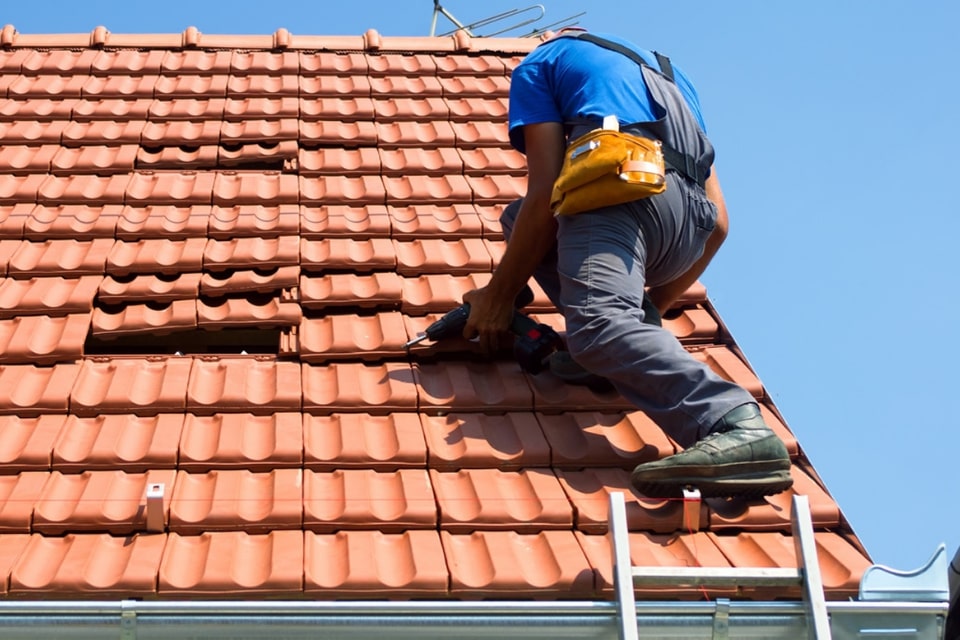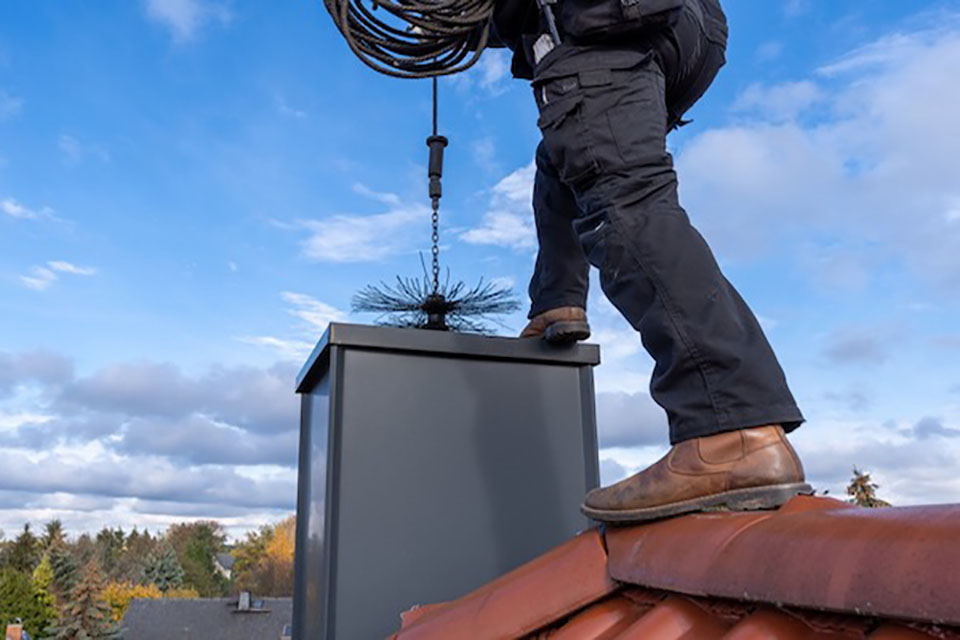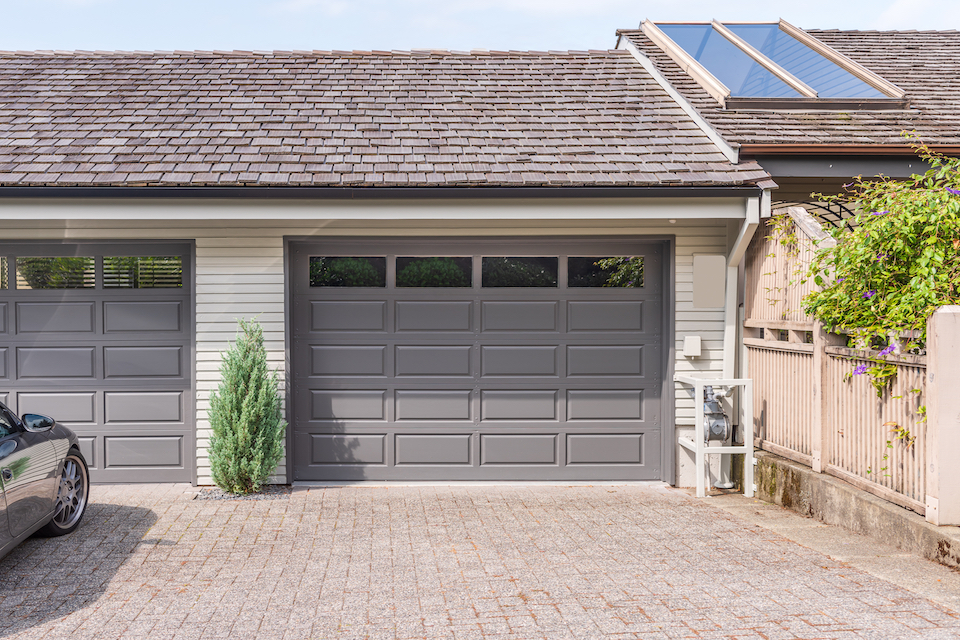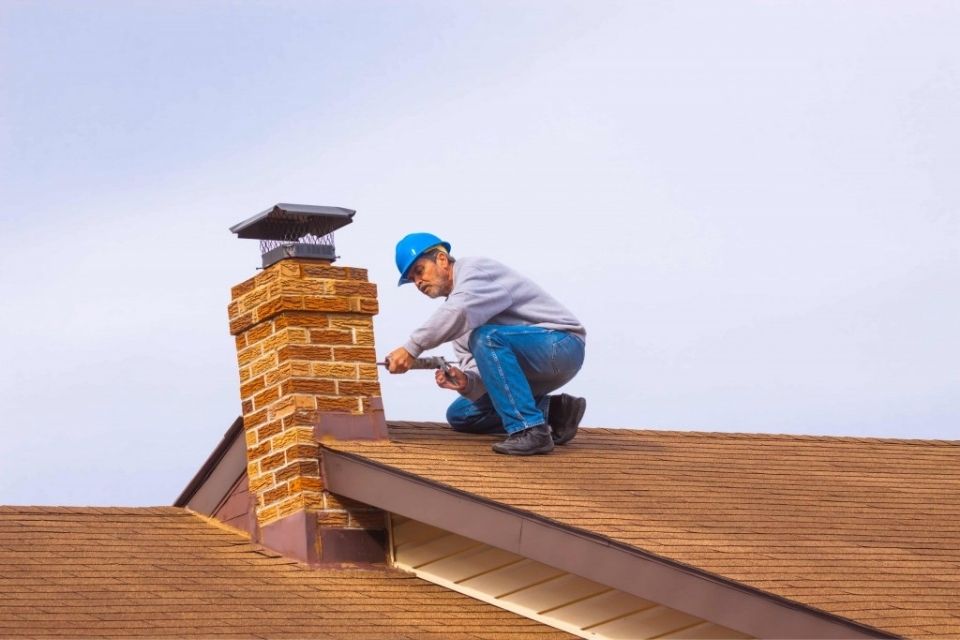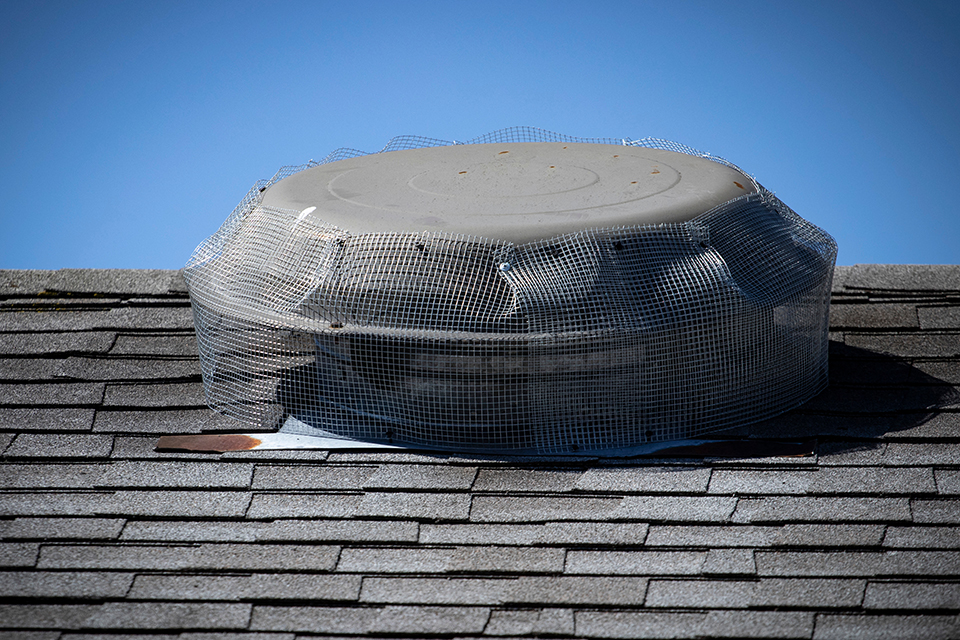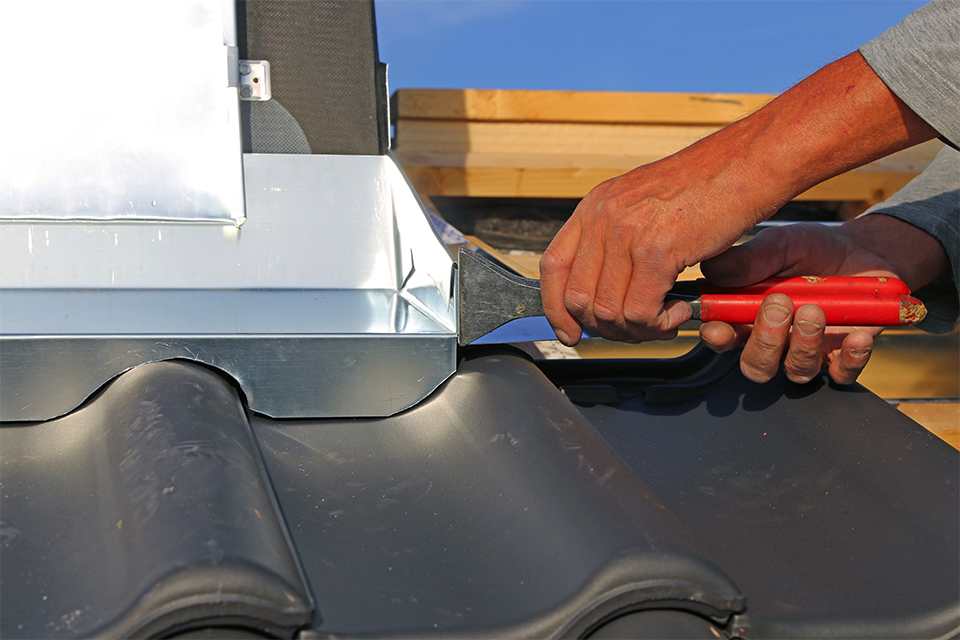How Much Do Roof Tile Repairs Cost?
If you notice any broken tiles on your roof, you may need to have them repaired to prevent leaks or further damage.
So what can you expect to pay?
The average cost of roof tile repair will vary depending on the type of repair job. For instance, to repair slipped or broken tiles you should expect to pay around £170 to £500, while the price to re-cement ridge tiles ranges from £150 to £600.
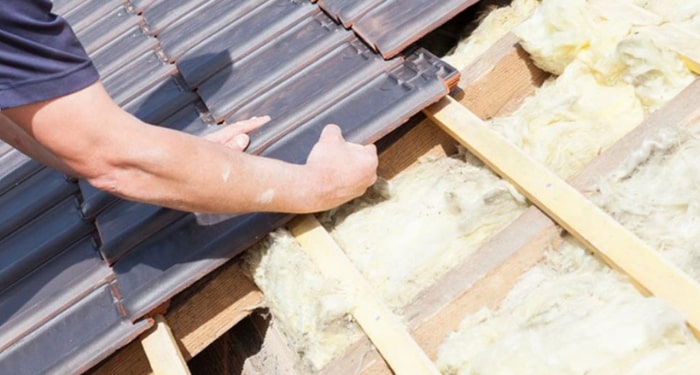
What other type of roof tile repair is there?
Other roof tile repairs include implementing a dry ridge system to fix tiles, which costs around £750 to £950, and the repair cost for valley tiles usually starts from £350 to £450.
Roof Tile Repair Price List
| ROOF TILE REPAIRS | TOTAL COSTS |
|---|---|
| Replace Slipped/Broken Tiles | £170 to £500 |
| Ridge Tiles Re-cement Cost | £150 to £600 |
| Valley Tiles Cost | £350 to £450 |
| Dry Ridge Cost | £750 to £950 |
Supply Cost of Roof Tile Repairs
When hiring a professional roofer to carry out roof tile repairs, it’s important to understand the typical supply costs involved. Most of the cost will be taken up by the type of tile you choose. Knowing these costs can help you better evaluate quotes and ensure you’re getting fair pricing.
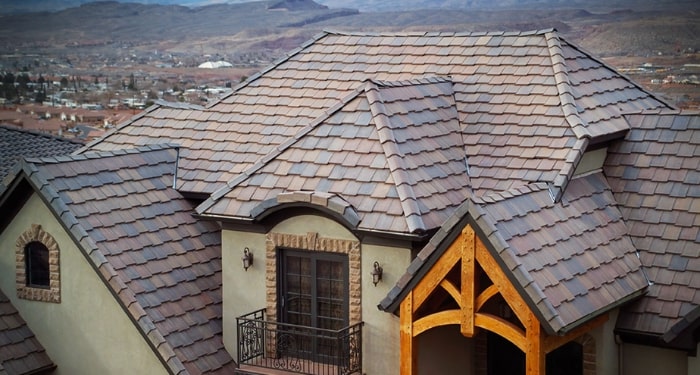
Here are some of the most common supply costs you can expect:
| ROOF TILE REPAIRS | SUPPLY COSTS |
|---|---|
| Clay roof tiles | £0.84 - £20 per tile |
| Concrete roof tiles | £0.70 - £50 per tile |
| Interlocking roof tiles | £1.67 - £8.40 per tile |
| Large format roof tiles | £4 - £7 per tile |
| Low pitch roof tiles | £1.92 - £7 per tile |
| Pantiles | £1.55 - £21 per tile |
| Clay ridge tiles | £2.60 - £70 per tile |
| Cement ridge tiles | £3.35 - £70 per tile |
Labour Cost to Repair Roof Tiles
When calculating the cost of roof tile repairs, you need to take tradesman costs into account. Roofing specialists typically charge around £150 to £250 per day or £21 to £39 per hour for smaller roof repairs.
To repair broken tiles, roofers tend to charge around £150 to £400 and £100 to £400 to re-cement ridge tiles.
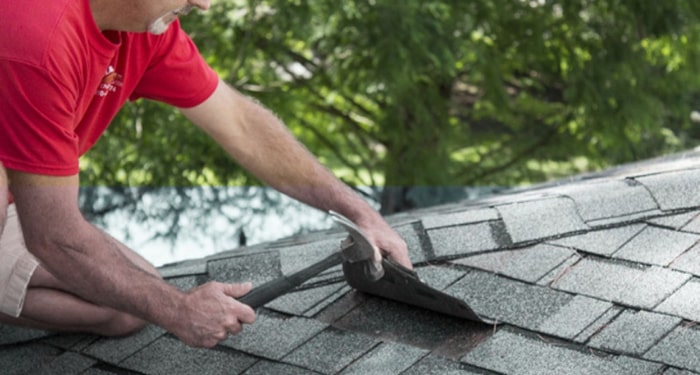
The labour cost for dry ridge repairs is normally about £150 to £250, while the price to repair valley tiles ranges from £200 to £300.
How Long Do Roof Tile Repairs Take?
To ensure you calculate the cost of roof tile repairs correctly, you should consider the time frame for each type of repair.
For instance, roofers tend to take around two to five hours to repair broken roof tiles, while re-cementing ridge tiles can take two to three hours.
A Tradesman may take around four to six hours to repair a roof valley, while dry ridge repairs can take up to two days to complete.
Types of Roof Tile Repairs
Before hiring someone to fix your roof, take a look at the guide below, which will outline the different types of roof tile repairs and their costs.
Slipped/Broken Roof Tile Repair Cost
If your roof was installed more than twenty years ago, you may start to notice issues such as slipped or broken roof tiles. These can lead to leaks, damp patches, and further damage if not addressed promptly.
The typical cost to repair or replace slipped or broken tiles ranges from £170 to £500, depending on the number of tiles affected, the type of roofing material, and the complexity of the job. This price usually includes labour, materials, and the safe removal of damaged tiles.
In some cases, the roofer may be able to simply secure the existing tile back into place, while in others, they may need to replace it with a new matching tile to maintain the integrity and appearance of your roof.
Pros:
- Ensures your roof remains waterproof
- Improves the overall appearance of your roof
- Repairs can help extend the lifespan of your roof
Cons:
- It can be costly
- Weather conditions may delay repairs
Ridge Tile Repair Cost
Ridge tiles play a key role in keeping your roof watertight, especially where two roof slopes meet. If you notice that the ridge tiles are damaged, cracked, or have become loose, it’s important to address the issue quickly.
Hiring a professional roofer for ridge tile repairs typically costs between £150 and £600, depending on the extent of the damage, the size of your roof, and the ease of access.
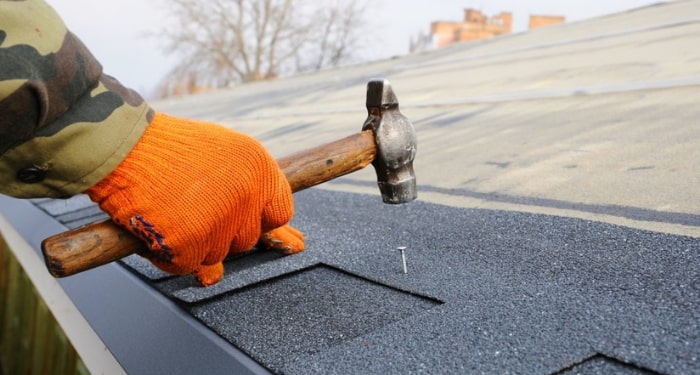
The job involves removing all the old, crumbling cement and thoroughly cleaning the area. The roofer will then apply new mortar to securely fix the ridge tiles back in place. In some cases, they may also recommend repointing if full replacement isn’t necessary.
Pros:
- Keeps roof waterproof and structurally sound
- Prevents further deterioration and potential leaks
- Extends the lifespan of your ridge tiles
Cons:
- Expensive if many ridge tiles need attention
- Scaffolding may be required, adding to the overall cost
Roof Valley Repair Cost
The roof valley is the area where two sloping sections of your roof meet, creating a channel that directs rainwater downwards. Because of the large volume of water that flows through this section, valley tiles are particularly prone to damage, dislodging, or wear over time.
Proper repair or replacement of valley tiles makes sure that rain water is effectively channelled off the roof, preventing leaks and water damage to the underlying structure. The cost for this work generally falls between £350 and £450, though prices can vary depending on the size of the valley, roof accessibility, and any additional repairs needed.
Pros:
- Ensures your roof remains waterproof in a critical water collection point
- Helps prevent further structural damage
- Maintains the overall integrity and longevity of your roof
Cons:
- Can be costly
- Weather conditions may delay repair work since
Dry Ridge Repair Cost
A dry ridge system is a modern alternative to traditional mortar for securing ridge tiles on a roof. Instead of using wet mortar, this system uses mechanical fixings and breathable materials to hold the ridge tiles in place, providing improved ventilation and durability.
The cost to repair or install a dry ridge system typically ranges from £750 to £950, depending on the size of your roof and the complexity of the installation. While it can be a higher upfront cost compared to traditional methods, many homeowners prefer dry ridge systems for their long-term benefits.
Pros:
- Eliminates the need for traditional mortar
- Provides better ventilation for your roof
- More durable and low-maintenance compared to mortar-based ridges
Cons:
- The initial cost can be higher
- Professional installation is recommended
- Scaffolding may be necessary
Additional Roof Tile Repair Costs
When you are getting your roof tiles replaced, there may be other repair jobs you want to get done at the same time to save on labour costs. Here are some other costs you should consider:
Chimney Repair
While repairing your roof tile repairs, it can be a smart time to consider having your chimney inspected and repaired. Addressing chimney issues early can help prevent more serious structural problems.
The two most common chimney repairs include:
- Flashing Repairs
- Repointing
Signs you may need chimney repairs include visible cracks, loose or missing bricks, damaged mortar joints, or excessive smoke escaping through areas other than the chimney pot. Ignoring these signs could lead to leaks, heat loss, or even potential fire risks.
Replacing Guttering
If you find your gutters are damaged or broken, then a professional may advise you to have them replaced. Gutter replacement usually costs around £400 to £700 for uPVC guttering or for cast iron gutters you can expect to pay up to £1,500.
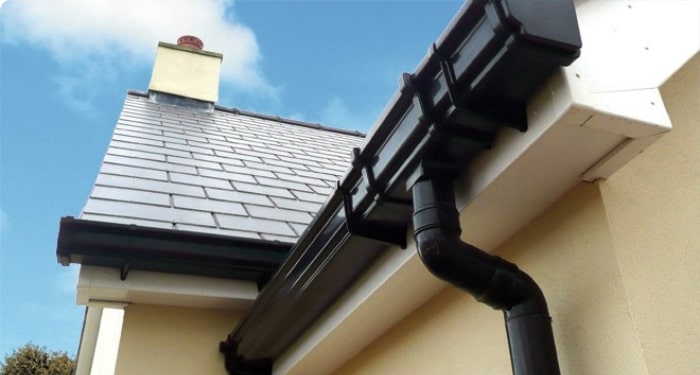
Scaffolding Hire
When working on your roof their maybe scaffolding costs involved.
Depending on the height of the roof where the tiles are being replaced, scaffolding may be required to carry out the work safely.
To hire a scaffold tower for 1 week you will be charged £200 - £300.
How Much Does Roof Tile Maintenance Cost?
Proper maintenance is key to extending the life of your roof tiles and protecting your home from potential weather-related issues. Regular upkeep helps prevent costly repairs down the line and makes sure your roof remains in good condition all year round. Below are some common roof tile maintenance services and their typical costs.
Sealing Roof Tiles Cost
Sealing your roof tiles can provide a protective barrier against moisture penetration, which reduces the risk of water damage, moss growth, and frost damage during heavy rainfall or harsh weather conditions. Sealants also help to maintain the look of your roof by preventing stains and discolouration.
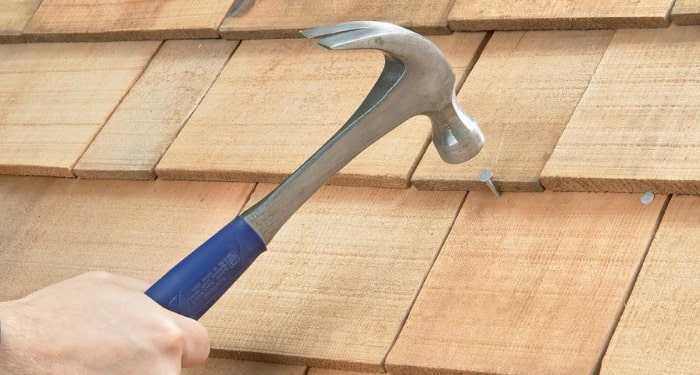
The cost for sealing and cleaning roof tiles generally ranges from £1,000 to £3,000, depending on the size and pitch of your roof, the type of sealant used, and the amount of cleaning required prior to application. Investing in sealant treatment can ultimately save money by reducing the need for frequent repairs.
Cleaning Roof Tiles Cost
Cleaning your roof regularly is essential to remove moss, algae, dirt, and debris that can accumulate on roof tiles. If these are left untreated, this buildup can trap moisture in and cause tiles to deteriorate or become dislodged, leading to leaks and further damage.
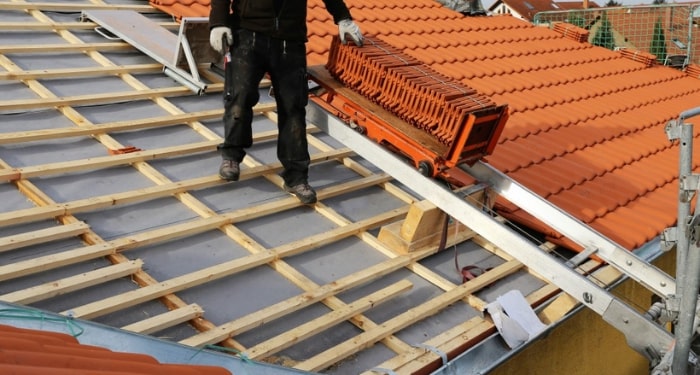
Professional roof cleaning often involves pressure washing or soft washing techniques designed to clean the surface without damaging the tiles. The average cost for roof cleaning is around £8 to £12 per square metre, though this can vary based on the level of dirtiness, roof height, and accessibility.
Routine cleaning combined with sealant application provides the best protection for your roof tiles and can significantly extend their lifespan.
Roof Tile Comparison
When repairing your roof tiles, you will usually select the same type of roof tiles you already have to keep your roof matching. Each type differs in regard to it durability and maintenance needs.
Below is a comparison of the most common types of roof tiles used in the UK, so you can have a better understanding of how your roof tile material compares to others on the market:
| Tile Type | Durability (Lifespan) | Maintenance |
|---|---|---|
| Concrete Tiles | 30 - 50 years | Low – occasional cleaning and minor repairs |
| Clay Tiles | 50 - 100 years | Moderate – may crack over time with some repairs likely |
| Slate Tiles | 75 - 150+ years | Low to moderate – occasional replacement of cracked or slipped tiles |
FAQs
Q: What are the best tiles for a roof?
A: Choosing the best tiles for your roof depends on several factors, including the pitch of your roof, your local climate, the overall look you want to achieve, and of course your budget. Before making a decision, you need to consider what works well with your roof type.
For instance, if you have high-slope roofs, then clay tiles could be the best choice as they are highly durable and resistant to extreme weather.
Low-pitched roofs work better with interlocking roof tiles, which are highly durable, easy to install and prevent leaks on flatter roof surfaces.
Q: What is the cheapest roof tile available?
A: Interlocking roof tiles are generally considered the most cost-effective roofing tile option. They are available in both clay and concrete materials, giving homeowners flexibility in choosing the look and finish that best suits their property.
While the initial cost per tile may be slightly higher compared to standard flat tiles, interlocking tiles are designed to cover larger roof areas with fewer tiles. Their unique design also allows them to fit tightly together, reducing the number of tiles and accessories needed for the job. This makes the overall installation process faster and more efficient, significantly cutting down on labour costs.
Q: How long should roof tiles last?
A: The lifespan of roof tiles can vary significantly depending on the type of material used, the quality of the installation, and how well the roof is maintained. On average, standard roof tiles tend to last around 30 years. However, some materials offer much longer durability.
For example, clay roof tiles have a typical lifespan ranging from 50 to 100 years when properly maintained. Concrete roof tiles can also last between 40 to 60 years if looked after.
Q: How do you know when to replace roof tiles?
A: There are several key signs that indicate your roof tiles may need to be replaced. Addressing these issues early can help prevent more serious and costly damage to your home. Here are the most common warning signs to watch for:
- Visibly cracked, broken or loose tiles
- Leaks or water dmage
- Rot or mold
- Sagging roof structure
If in doubt, consult a professional roofer to inspect your roof thoroughly.
Q: How often do roof tiles need to be maintained?
A: Regular maintenance is essential to prolong the lifespan of your roof tiles and prevent costly repairs down the line. As a general rule, you should clean and inspect your roof at least once a year. This helps remove any mould, moss, algae, dirt, or debris that may accumulate over time and cause damage or block drainage systems.
In addition to annual cleaning, it’s recommended to have your roof professionally inspected every three years. A qualified roofer can check for issues that may not be visible from the ground, such as cracked tiles, loose fittings, deteriorating underlayment, or early signs of leaks and structural concerns.

